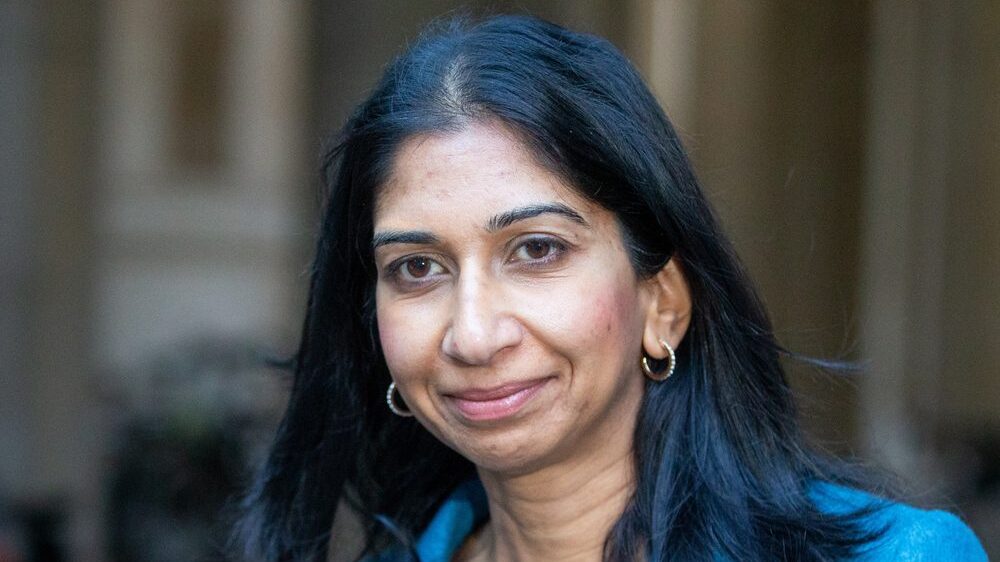
Suella Braverman
Photo: I T S / Shutterstock.com
In a July 18th speech, Home Secretary Suella Braverman outlined the latest update to the UK government’s 20-year-old counterterrorism strategy.
That strategy, called CONTEST, was last updated in 2018 following five Islamist terror attacks in 2017—among them, the notorious Manchester Arena bombing, which killed 22, and the London Bridge attack, which claimed the lives of eight.
Since 2017, a peak year in terms of the number of jihadist-related terrorist attacks in the EU, with 33 failed, foiled, and completed, the UK has experienced nine terror attacks that killed six people and injured 20 others. A further 39 attacks were disrupted, according to the Home Office.
In her speech, Braverman said the risk from terrorism is “once again rising.”
In addition to this, the home secretary warned the UK is facing
a domestic terrorist threat which is less predictable, harder to detect and investigate; a persistent and evolving threat from Islamist terrorist groups overseas; and an operating environment where technology continues to provide both opportunity and risk to our counter-terrorism efforts.
This year’s CONTEST review highlighted how the “primary domestic terrorist threat” comes from “Islamist terrorism,” which Braverman called “by far the biggest.” Since 2018, she added, it accounts for “67% of attacks, taking up about three quarters of MI5’s caseload.”
As of March this year, 64% of those in custody for terrorism-connected offenses had Islamist motives, the review noted.
The figure is remarkable given the UK’s demographic composition. According to the Office for National Statistics, the Muslim population in the UK stood at 3.9 million in 2021, representing only 6.5% of the total population.
Due to the “relative decline” of terrorist organizations such as al Qaeda and the Islamic State (IS), the review continues noting that there is a “diminishing” link between perpetrators and “explicit affiliation and fixed ideological alignment” with any one group.
The Home Office identified ‘right-wing extremism’ as the next most serious threat, as it makes up approximately 22% of attacks since 2018, a quarter of MI5’s caseload. Of those in custody for terrorism-connected offenses, 28% had such sympathies.
According to the review, in such circles, organization is less developed when compared to Islamic terrorists. Since they often lack a clear leadership structure, they tend to consist of “informal online communities which facilitate international links.”
It also warned that “hostile state actors such as Russia” are engaged in stoking the right-wing extremist threat by “seeking to promote divisive and polarizing narratives in the West,” as part of an effort to trigger destabilization there.
The “accelerating availability of new technologies and online platforms provides both opportunity and risk to our counter-terrorism efforts,” the CONTEST review notes, since “terrorists exploit technology to hide their networks, spread their propaganda and enable their attacks.”
The internet has contributed to the “rapid proliferation” of terrorist content online, including live streams of attacks, which the review says is “especially potent and harmful.”
To illustrate this fact, over half of those under 18 years of age convicted of terrorism in the past five years were charged with non-violent crimes, like collecting or sharing terrorist information.
Yet the UK’s counter-terrorism efforts are equally aided by technology, as the “proportionate use of cutting-edge techniques” can make its response “more efficient and effective.”
The rapid rise and spread of artificial intelligence was given due consideration by the review, which recognized its “implications for both our approach to counter-terrorism and the threats we face, with the potential for terrorist activity to become more sophisticated with less effort.”
Prevention (besides ‘PURSUE, PROTECT, PREPARE’ one of four pillars of the UK’s counter-terrorism strategy), then, is to remain a top priority for Braverman—one in which “there is no room for complacency, political correctness or cultural timidity.”
She remarked:
I have issued an instruction that PREVENT focus solely on security, not political correctness. PREVENT is going back to first principles and reasserting its overall objective of stopping people from becoming terrorists or supporting terrorism. After all, it is a security service, not a social service.
